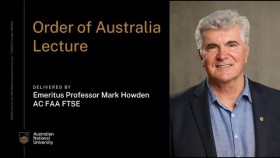First GPG Australia Hydrogen Economy scholar to study storage options
Master of Energy Change student, Desy Prihardini, has been awarded the first Global Power Generation Australia (GPGA) Scholarship in the Hydrogen Economy and will use the $20,000 to study hydrogen storage in liquid organic carriers.
Desy said she was “happy and surprised” to receive the grant, and excited to be part of an expanding research field that could help countries lower their greenhouse gas emissions which exacerbate climate change.
“I am most interested in hydrogen as an energy vector as I think it has potential to be the solution for broadening the spectrum of decarbonizing the world’s energy system,” Desy said.
“This scholarship will not only provide support for me to complete the project I’m undertaking, but also motivate me to delve further into this field.”
Desy has a background in chemical engineering, and will use the scholarship to boost her research skills in designing advanced chemical systems such as liquid organic hydrogen carriers (LOHCs).
These carriers are molecules which would enable hydrogen to be stored and transported in liquid form, which would make the energy vector more technologically and economically viable.
David Santo Tomas, GPGA’s Projects Director, said the company considers its scholarships to be an important way of supporting the development of local research and expertise in the hydrogen sector.
“It forms a key part of our commitment to the ACT region that started in August 2016,” he said.
"Renewable energy and hydrogen creates jobs, drives growth, and protects our environment.
“In this specific case, it helps the education of the future leaders in this important sector.”
One challenge facing the sector is how to store hydrogen produced from renewable energy sources, and use that hydrogen in various ways, for example, in transportation.
Desy is part of a project in the ANU Research School of Chemistry in which researchers are building a database of potential LOHCs based on the Jean-Claude Bradley Melting Point Dataset.
Developing efficient and effective hydrogen storage technologies will help support the growth of the hydrogen economy in Australia, including as a potential export industry to countries such as Japan, South Korea and Germany, which have all expressed interest in Australian hydrogen.
Desy is co-supervised by ANU Grand Challenge: Zero-Carbon Energy for the Asia-Pacific Research Fellow Dr Chunguang Tang, and Professor Yun Liu, fellow Grand Challenge member and Head of chemistry’s Functional Materials Research Group.
Prof Liu, convenor of the Energy Change Institute’s Energy Storage and Recovery research cluster, said once the project is finished, the database will be a valuable way the research community can screen potential LOHCs.
Desy, from Surabaya, Indonesia, has recently been transferred from the Master of Energy Change program to the Master of Energy Change (Advanced) stream.
“The Master of Energy Change program has shaped my ability to analyse the complex issues of energy systems,” Desy said.
“It’s helped me to understand not only the technical or engineering aspects of the energy transition, but also other aspects, such as social, politics, and economics.
“Taking an advance program allows me to focus on the particular aspects of the transition towards clean and sustainable energy systems.”











